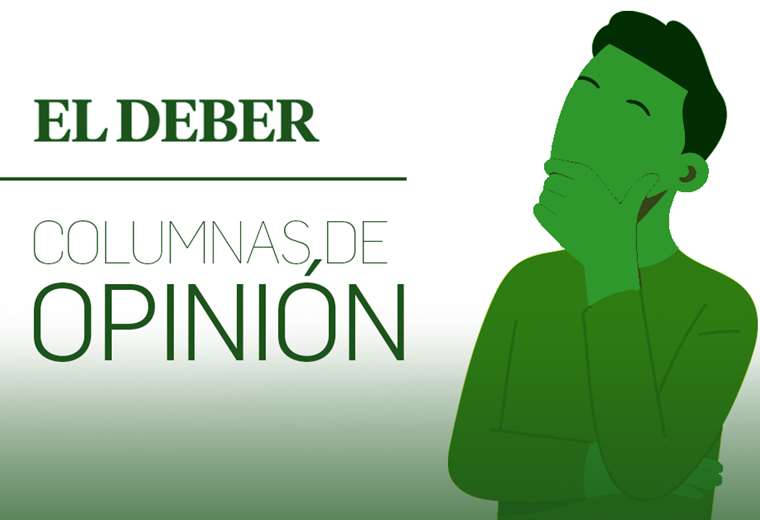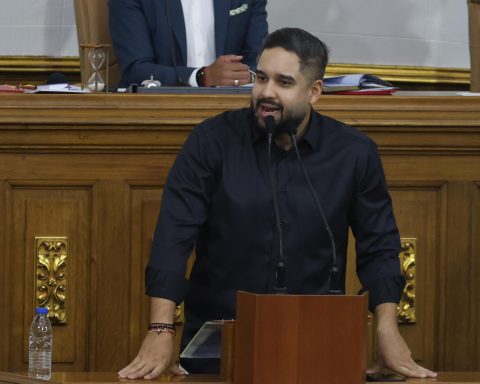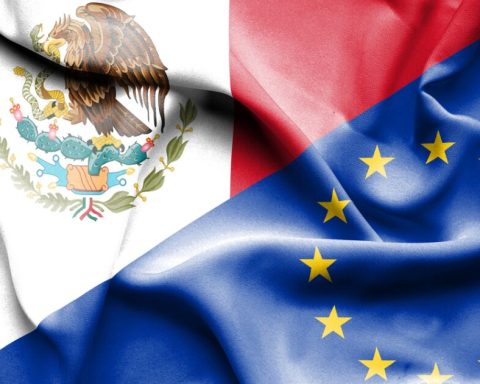Among observers and analysts of national politics there is a more or less widespread consensus: even though she managed to get away with an attempt by the Republican Party to impeach her constitutionally, the Minister of the Interior, Izkia Siches, continues to be the weakest flank of the government, that affects, in subsidy, the chances of triumph of the Approval if we consider that La Moneda tied its destiny to the result in the exit plebiscite. “And this is much clearer when we see that they have put her in a kind of freezer,” said the doctor in Political Science and academic Rodrigo Espinoza, who suggests a change in the cabinet to save a recoverable figure because he still has political capital. in the social world.
Seen as the weakest prey within the herd, the head of the Interior seems to concentrate all the opposition’s attacks and onslaughts, the analyst points out. It is self-evident, he assures, to see how the most rigorous and inquisitive questions are asked of them at the press points, always waiting to extract a controversial phrase, an error, some contradiction, any inconsistency that feeds new questions and contributes to undermine the bases of the government. For Espinoza, what is behind it is obvious: to affect the options of the Approval.
“Chile Vamos, and the right more in general, is taking its revenge against the Broad Front because it was that coalition that largely blocked the counter-reform program promoted by the second government of Sebastián Piñera to reverse the reforms of the second government of Michelle Bachelet”, said Espinoza. “Today the right has only one objective: to neutralize the wave of reforms, starting with the constituent process, which would be giving it results,” added the doctor in Political Science. “It also serves to show a comparative advantage in one of the two matters in which the right is more decisive. One is the economy, something that also worries people; the other is public safety,” he added.
Criticisms against Siches would have the objective, in the words of the analyst, “to maintain the status quo and wait some minute to initiate counter-reforms taking advantage of the levels of unpopularity of this government.” Unfortunately, according to Espinoza, “the minister had to take charge of dragging problems such as the insecurity crisis, the lack of migratory control, what is happening in the southern macrozone, organized crime, the lack of public order… they are all problems inherited from the government of Sebastián Piñera, but Minister Siches did not have the experience in the highest levels of government to face them, and less so in such an important ministry.”
“The situation of the minister (Siches) directly affects the popularity of the government. Let us consider that the government is embarking on the Approval through information campaigns to publicize the constitutional proposal and deal with false news. But a weakened Minister of the Interior generates a domino effect that could influence greater adherence to the Rejection, and that can generate a greater government crisis,” added Espinoza.
“It is evident that, to all these events of the contingency, there were also communicational errors that affect him today, especially his visit to Temucuicui, the statements he made in Congress based on unverified data about the flight with expelled foreigners who was allegedly returned and the situation linked to the social outbreak regarding whether or not there are political prisoners, “he said. “Then, the minister also added fuel to the fire,” he added.
Rescuing Minister Siches
Despite everything, the political analyst believes that Izkia Siches “still has political capital”, which makes her a figure “who can reverse her disapproval to the extent that a cabinet change is promoted that places her in a more suitable ministry for her, like the Ministry of Health. She is probably one of the first cards to leave the government, but perhaps she will eventually opt for a move into the cabinet”.
The analyst affirms that the minister can come back “if she takes advantage of her capital in another ministry, one where she feels comfortable, where she has links with the social world, where she has networks,” he stressed. It is clearly the best way to preserve political capital intelligently built during Piñera’s second government, Espinoza recalled: “He came from the Medical College with enormous approval, because it became a kind of counterweight to the decisions of the social world. of the government (of Piñera) and Congress in the face of the handling of the pandemic. And there she acquires enormous popularity as a spokesperson despite that incident in which she described government officials as ‘unhappy’ in a podcast, and this was possible thanks to the low approval levels that Piñera had at that time”.
The other possibility, Rodrigo Espinoza believes, is that Siches manages to take the pulse of a portfolio where ordinary Chileans expect whoever is in charge to act with a “firm hand.” In the long run, it is more or less clear that the original design failed since it privileged the symbolic over the practical, since it aimed to set up a joint duo with President Boric with a clear gesture to the regions -because both are from the most extreme regions of the country. The government did not know how to assess the importance of incorporating a figure with a different profile and tonnage in a key ministry, especially considering the multiple public security problems that the country is experiencing.
“Minister Siches arrives without experience in a very important position, and the forms are different when you are a government. You cannot lightly treat certain issues that are key and that mark people’s lives. To this we add that the government did not want to use the state of emergency and then replaced it, and all this generates confusion, noise and tensions with the undersecretary (Manuel) Monsalve. The consequence is that today we have a minister in the freezer and that she speaks very sporadically, ”said the specialist.
Another problem that was generated by the performance of Minister Siches is the “debt” that I Approve Dignity begins to accumulate with “democratic socialism”, since the mistakes made by the Minister of the Interior managed to be overcome thanks to the timely help of some leading figures of the former Concertación, including Senator José Miguel Insulza. However, this closeness tends to disfigure the government’s transformative project, believes Rodrigo Espinoza.
“The toughest sector of Approve Dignidad does not see this situation with good eyes, but it needs that world because it is a minority in both chambers,” Espinoza pointed out, thus emphasizing that the need to “make gestures to that world suggests to us that Interior could be occupied by a letter from the former Concertación and that would generate a lot of noise in the ruling party. Everything seems to indicate that this name would come from the Socialist Party, perhaps (Manuel) Monsalve himself”, he concluded.


















